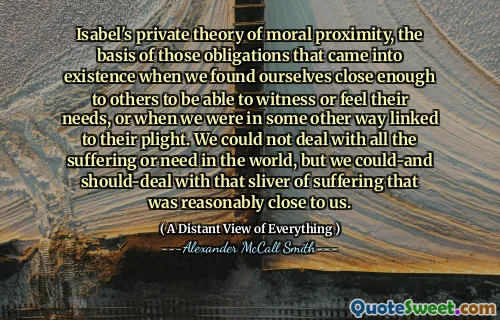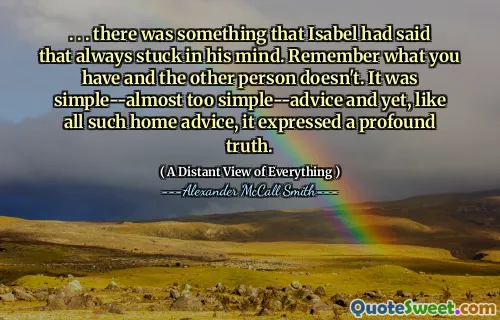
The trouble with having a conscience, she said to herself, is that it never sleeps.
The quote reflects the persistent nature of conscience, which constantly hounds individuals with moral considerations and dilemmas. The protagonist contemplates how having a conscience means facing an unending internal dialogue that challenges decisions and actions. This relentless scrutiny can lead to feelings of unrest and guilt, tying personal ethics closely to mental well-being.
In Alexander McCall Smith's "A Distant View of Everything," this theme illustrates the complexities of human emotions and the burden that comes with self-awareness. The characters grapple with their moral choices, suggesting that the presence of a conscience may sometimes feel more like a burden than a blessing, as it compels constant reflection on right and wrong.











